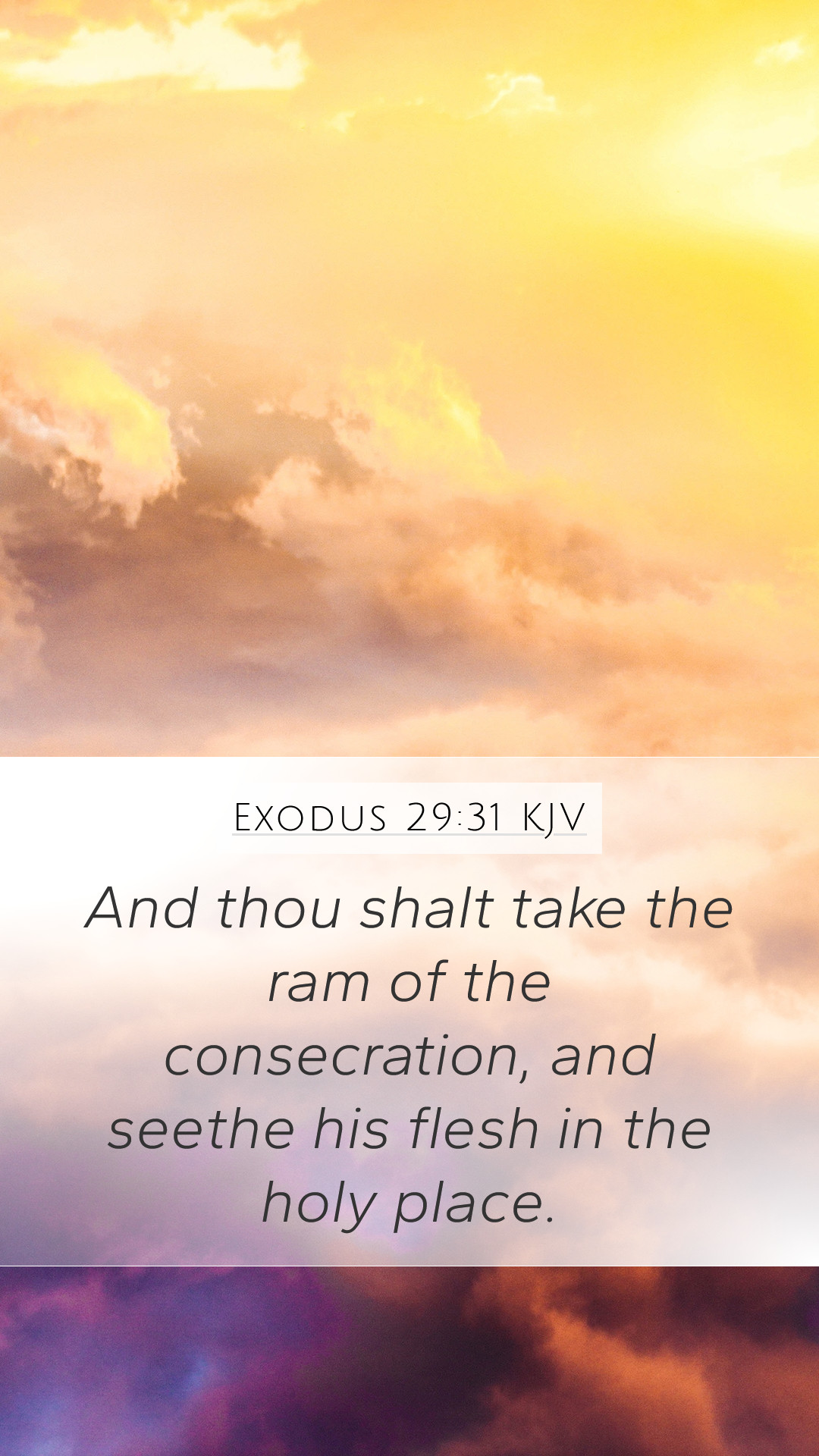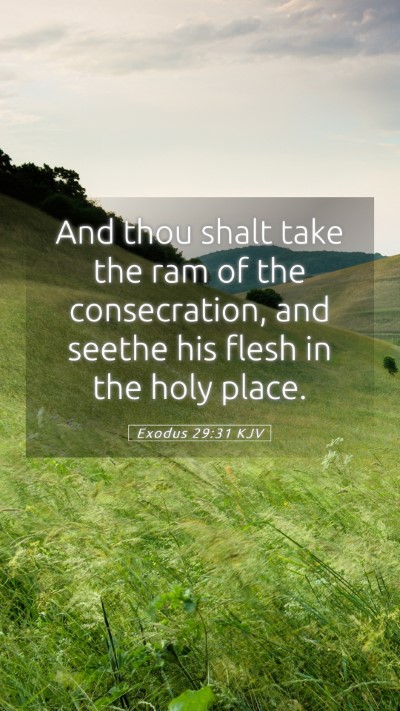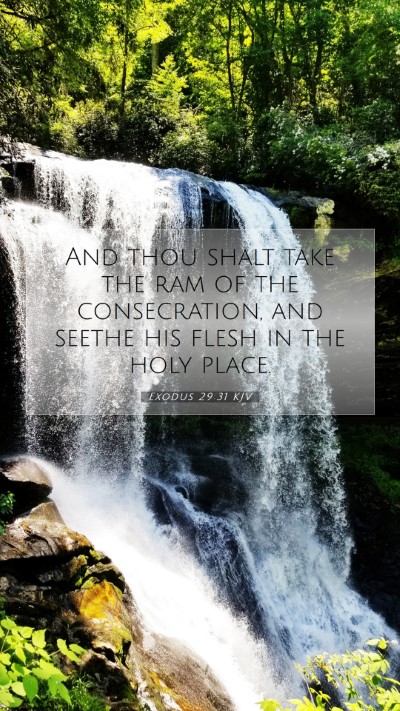Exodus 29:31: Overview
Exodus 29:31 discusses the preparation of the consecrated food for Aaron and his sons. The verse states, “And thou shalt take the ram of the consecration, and seethe his flesh in the holy place.” This passage is part of the instructions given to Moses regarding the ordination of the priests. It emphasizes the importance of ceremonial rituals and their significance in the life of the Israelite community.
Meaning of Exodus 29:31
The verse serves as a key element in the broader context of the priestly sacrificial system. It underscores the sacredness of the offerings made to God and establishes a visible act through which the priests engage in their duties.
Insights from Commentaries
-
Matthew Henry:
Henry emphasizes that this passage illustrates God’s provision for the sustenance of His servants. This consecration ceremony indicates that the priests were well cared for so they could focus solely on their sacred responsibilities. He notes that the meat cooked in the holy place symbolizes the fellowship between the priests and God, reinforcing their role as mediators between God and the people.
-
Albert Barnes:
Barnes highlights the significance of the word “seethe,” which suggests a method of cooking that retains the essence of the meat, representing the preservation of life and holiness. He points out the meticulous instructions given in the Levitical practices reflect the seriousness of approaching God in worship. Barnes also notes the communal aspect of the consequences of these rituals, showing how they were to serve the community as representatives of the divine.
-
Adam Clarke:
Clarke provides a detailed analysis of the idea of holiness that permeates this passage. He reflects on the necessity of priestly purity and how these rituals reinforce their sanctification. The sacred actions signify much more than mere ritual; they convey the profound relationship between God and His chosen servants, symbolizing devotion, duty, and divine order within the Israelite community.
Application and Relevance
Exodus 29:31 speaks not only to the practices of ancient Israel but also serves as a guide for modern spiritual leaders. It underlines the necessity of being set apart for God’s work and the importance of maintaining holiness in ministry. Understanding this verse aids in grasping the continuity of God’s covenant with His people, affirming the call for dedication and service in contemporary faith communities.
Biblical Exegesis and Commentary
Incorporating biblical exegesis and rigorous scripture analysis, it becomes clear that this passage encourages a deeper understanding of God’s relationship with His servitors. The detailed ritual practices mentioned in Exodus reflect a pattern established by God throughout Scripture wherein worship requires preparation and sanctification.
Cross-References
- Leviticus 8:21 - Describes the consecration of priests.
- Numbers 18:8-10 - Discusses the priests’ right to the offerings.
- Hebrews 5:1 - Argues that high priests are selected from among men to represent them before God.
Broader Implications in Scripture
The significance of Exodus 29:31 aids in understanding broader biblical themes such as sacrifice, atonement, and the nature of holy service. By engaging in the study of this text, one can explore the attributes of God elucidated through His instructions to Israel.
Conclusion
In conclusion, studying Exodus 29:31 not only helps uncover its immediate context but also prompts reflection on the ongoing implications of these teachings for believers today. As individuals seek to understand scripture through Bible study groups or online resources, the insights garnered from this verse contribute significantly to their spiritual growth and biblical literacy.


